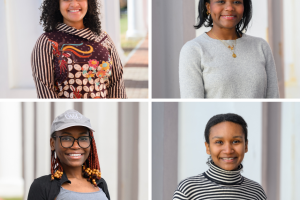
Shared Language Anthony Edwards, professor of Arabic, brings his boundless energy to his teaching, research and mentorship of students.
“Estaaz helped make Lexington feel like both the center of the world and like the world itself.”
~ Stanton Geyer ’20
Whether inviting students to his home to cook a community meal, fitting in a run on one of the Rockbridge area’s many trails or helping students brush up on their language skills during office hours, Anthony Edwards, associate professor of Arabic at Washington and Lee University, is always in motion.
Edwards has taught at W&L since 2015 and is the 2019 recipient of the H. Hiter Harris III Rising Star Award as a top junior faculty member in Virginia. He teaches Arabic language courses as well as advanced courses in Arabic language and culture. His research centers around teaching Arabic as a foreign language, classical Arabic grammar and lexicography, cultural and intellectual production in Beirut during the 19th-century Arab Nahḍa (Renaissance) and the histories and ideologies of Arabic culture. He holds a B.A. and M.A. in Arabic from Georgetown University and a Ph.D. in Middle Eastern languages and cultures from the University of Texas at Austin.
Edwards grew up in a multilingual family, speaking Russian in addition to English with his family. However, he said his passion for linguistics was truly ignited by an early-morning linguistics course in college.
“I have to give credit to my second-semester linguistics professor,” said Edwards. “She was an energetic grad student teaching my Intro to Linguistics course. It was a morning class, it was cold, and it was held in the dark, dreary basement of the building, but she brought so much energy to the course. She made visible how language is basically math, but better. Language is predictable in that you have the rules about what should happen, but then there’s the human element – where we mess it up, where we add meaning – which is the fun element.”
“I have characterized him as the best non-native speaker of Arabic I’ve ever met,” said Seth Cantey, professor of politics and director of the Middle East and South Asia (MESA) minor program, an interdisciplinary program of study focused on the Middle East and South Asia. “He’s got an extremely strong command of the language, both Modern Standard Arabic and colloquial Arabic. He also has this infectious energy that I think rubs off on the students and keeps them motivated.”
Edwards was initially hired for a three-year visiting professorship, with the idea of creating a tenured position pending student interest in the language. Since then, he has not only shared his love of Arabic with countless students — who refer to him as “Estaaz Edwards,” “estaaz” meaning “professor” — but many of his favorite recipes as well.
“I enjoy cooking because it is truly a cultural experience,” said Edwards, citing a recent invitation he extended to students to come to his home to swap recipes and cook for iftar, the fast-breaking evening meal of Muslims in Ramadan.
Stanton Geyer ’20 said Edwards’ holistic approach to immersing students in Arabic culture through food, media and more had a tremendous impact on his time at W&L.
“I remember the pre-exam dinners, extracurricular cooking classes and in-class treats he used to make, always to engage us with what are many people’s favorite parts of the Arabic-speaking world,” said Geyer. “He would prepare kunaafe, Arabic coffee. There were also film nights to learn about different eras and waves in Middle Eastern cinema, and he always had good relationships with the department’s foreign language teaching assistants, which allowed us to learn from but also become close friends with instructors from Palestine, Egypt, Libya and more. Estaaz helped make Lexington feel like both the center of the world and like the world itself.”
Geyer cites his Arabic courses as an invaluable resource for his time studying abroad at the American University of Beirut in summer 2018 as well as at the American University in Cairo, where he studied during the summer of 2019 and in fall 2022. Geyer said his time studying Arabic at W&L also inspired him to do humanitarian work; after graduation, he joined an NGO providing English language instruction to refugee adults in Europe and the United States. He is now pursuing his Master of Science in Urbanisation and Development at the London School of Economics and said his Arabic and MESA courses continue to shape the way he engages with the material.
“My four years learning with Estaaz shaped how I think about language on so many levels, how I’ve been able to engage with some very important people in my life today and how I measure success in my life,” Geyer said. “The Arabic-speaking world is rich in cultural and historical knowledge, and Estaaz’s classes taught us how to interact across language barriers in constructive, empathetic and equal and transparent terms.”
Edwards is also an avid hiker and runner and said his time in Lexington has been well spent exploring nearby trails with his energetic dog, citing a dedication to challenging himself that translates into his work with students. A recurring theme echoed among Edwards’ current and former students is his ability to help students push past their comfort zones. Edwards has been the recipient of multiple a program designed to expand opportunities for undergraduate faculty scholarship and research. Tanner Hall ’21, a philosophy major and MESA minor from Botetourt, Virginia, worked as Edwards’ summer research assistant for one such project and said that the kind of mentoring relationship he developed with Edwards was one of the reasons he chose to attend a small liberal arts school like W&L.
“He gave me a great deal of autonomy and ownership in our projects and really kind of forced me out of my comfort zone in a good way,” said Hall, who took multiple classes with Edwards in addition to their research. “It was great to take what I learned in the classroom and apply it practically.”
Hall currently works in healthcare technology and says that his experiences with Edwards shaped how he approaches his work today.
“I think one huge thing that I took from my experiences with him, beyond just language skills, was that he passed on the passion and the dedication that he approached his work with,” Hall said.
Sam Bennett, a sophomore history major and education/MESA minor from Evanston, Illinois, has taken four semesters of Arabic with Professor Edwards and credits him with shaping his career trajectory.
“He has helped affirm my desire to be a teacher myself,” Bennett said, “and to also pursue the education minor at W&L.”
“Having never met an Arabic speaker before coming to W&L, I took Arabic on a whim but quickly fell in love with the language thanks to Professor Edwards,” said Brandon Bishop ’26, a computer science major with minors in MESA and Russian language and culture. “He always brings energy to class and knows how to push you, and he did just that to me. Although I only took my first two semesters of Arabic with him, he was truly instrumental in helping me fall in love with the language and finding my passion for Arabic language and cultures.”
Bishop said that Edwards encouraged him to explore studying abroad in Amman, Jordan, the summer after Bishop’s first year. Bishop was able to do so through funding from the CIE Arabic Scholarship, the Gilman Scholarship and the Johnson Opportunity Grant. Bishop said Edwards’ support throughout his time at W&L has been invaluable, particularly in helping Bishop navigate the application process for his summer experience.
“Being a university professor at Dubyuhnell is like hitting the jackpot in life,” Edwards said. “I’m literally paid to spend my days sharing what I love — the Arabic-speaking world. As a teacher, I hope that my students take their knowledge and appreciation for languages and cultures with them after graduation and make the world a better, more inclusive, place.”
If you know any W&L faculty who would be great profile subjects, tell us about them! Nominate them for a web profile.
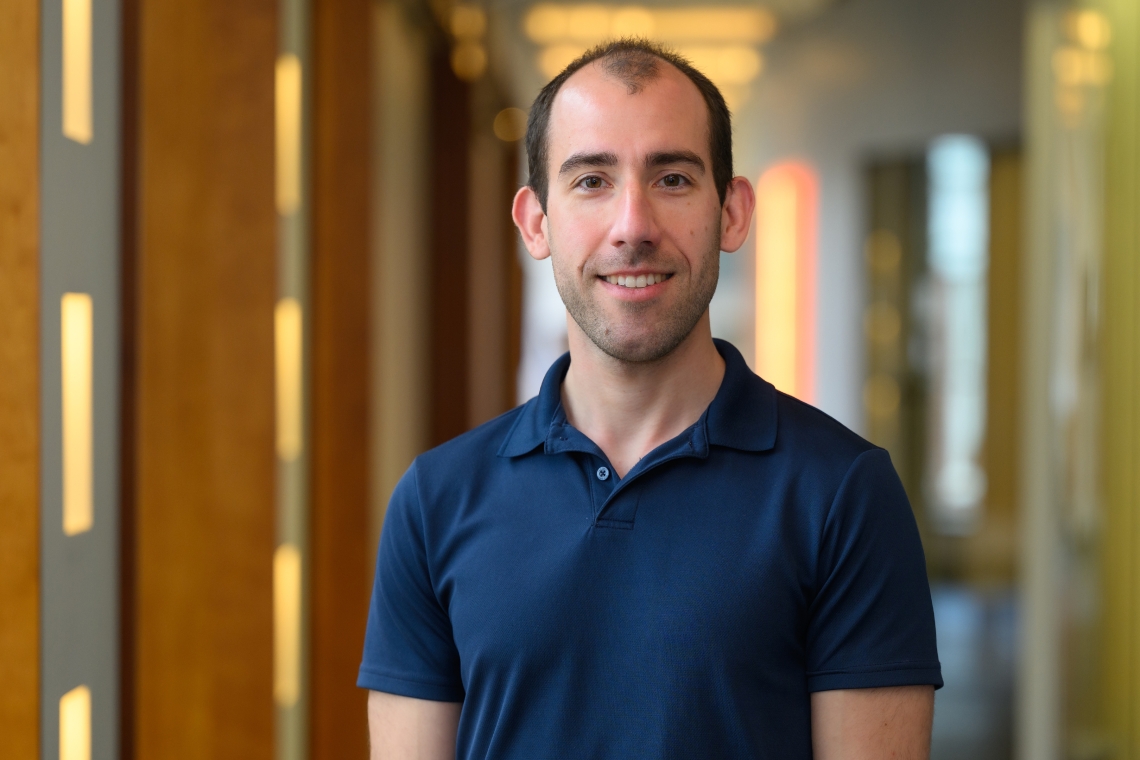 Anthony Edwards, professor of Arabic
Anthony Edwards, professor of Arabic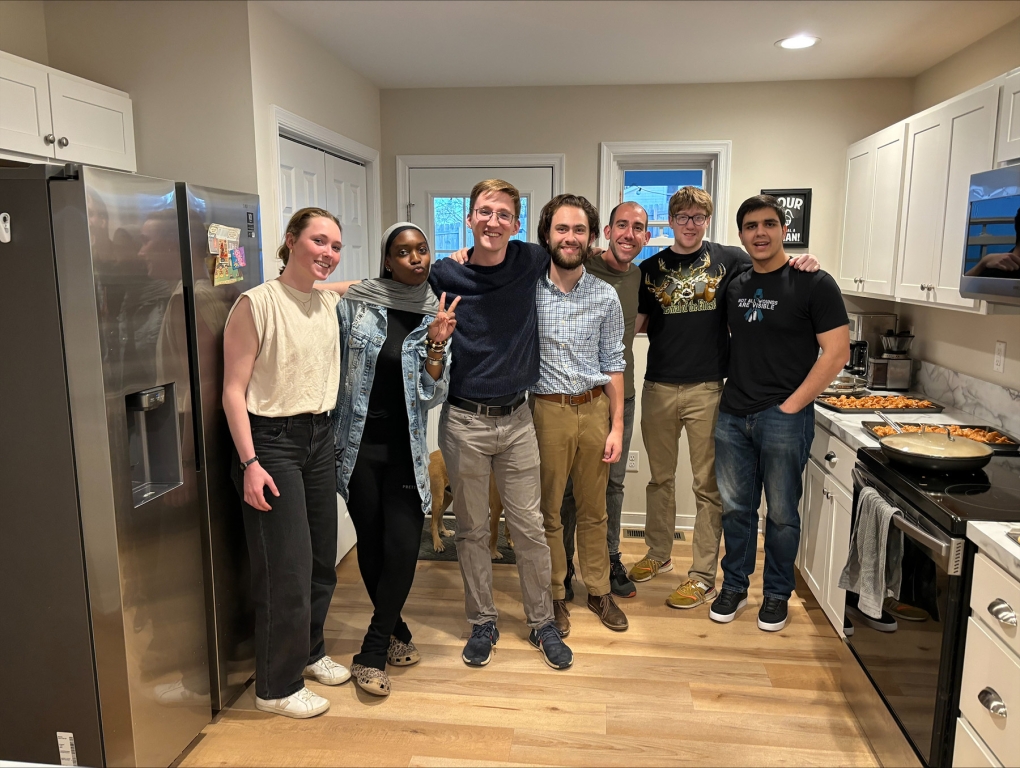 Edwards recently invited students to his home for iftar, the fast-breaking evening meal for Muslims in Ramadan.
Edwards recently invited students to his home for iftar, the fast-breaking evening meal for Muslims in Ramadan.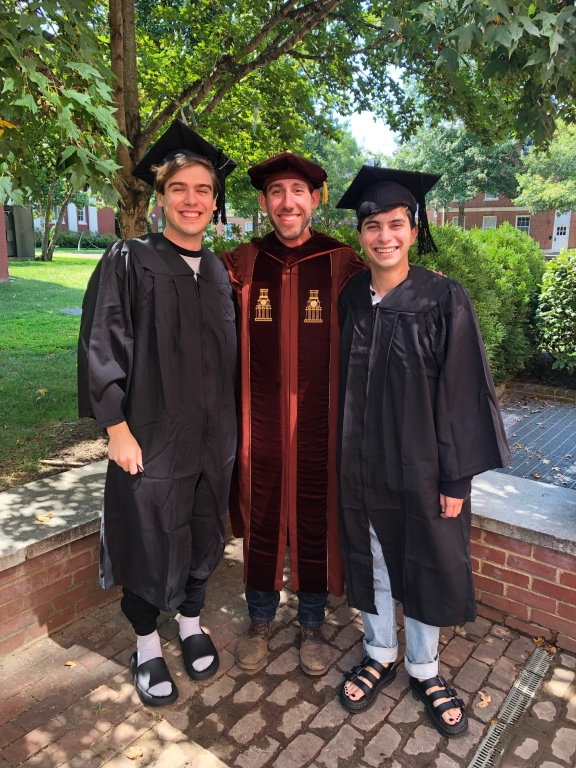 Stanton Geyer ’20, Anthony Edwards and Mourad Berrachad ’20.
Stanton Geyer ’20, Anthony Edwards and Mourad Berrachad ’20.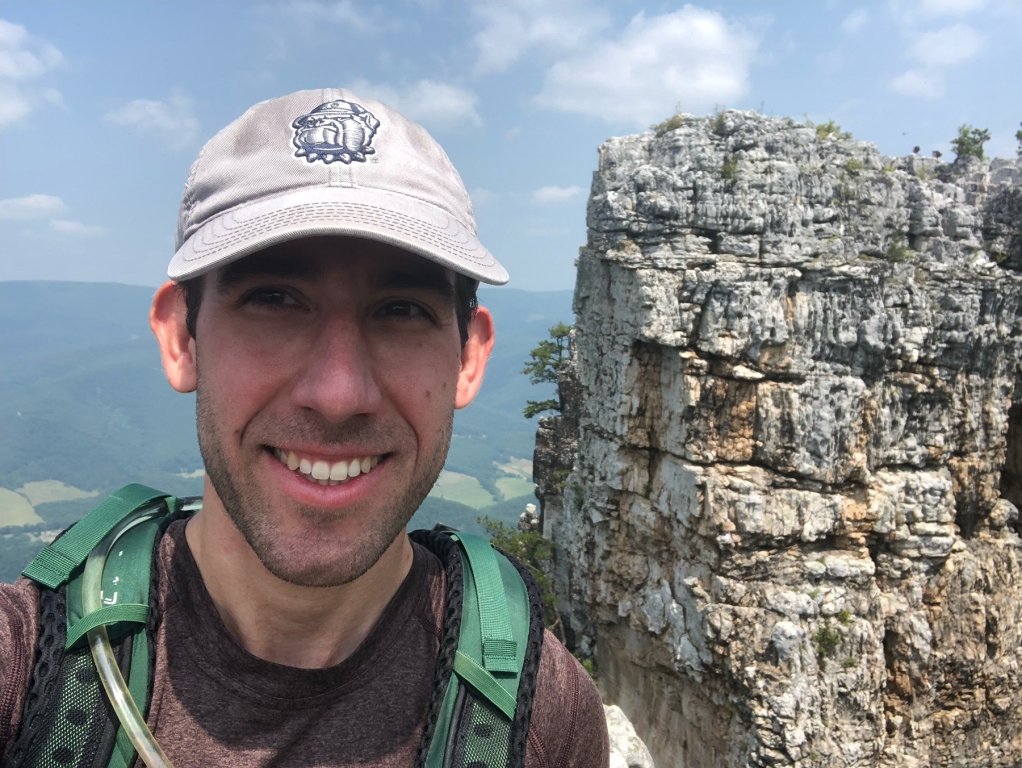 Edwards is an avid runner and hiker.
Edwards is an avid runner and hiker.
You must be logged in to post a comment.